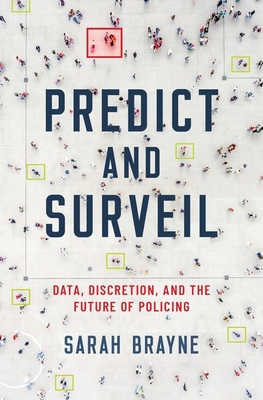christa reviewed Predict and Surveil by Sarah Brayne
a real view of how police adopt surveillance technology
5 stars
this is a must read if you're interested in policing and surveillance technologies, and how to think about technology adoption within hierarchical and bureaucratic institutions. I think a particularly fascinating focus of this book that isn't as present in other similar ones on the topic is the look at police as workers with their own set of motivations: resistance to deskilling and wanting to be valued for craft, a resistance to surveillance of their own work product, of the role of the police union in resisting surveillance technologies (at least in certain applications) because of fear of loss of agency and power. while highlighting this dynamic, brayne does not fall into the trap of portraying police as mere workers struggling for power under an oppressive management structure (a trap that some leftists still fall into). accurately, there is never a point at which that protection of self-interest is described as …
this is a must read if you're interested in policing and surveillance technologies, and how to think about technology adoption within hierarchical and bureaucratic institutions. I think a particularly fascinating focus of this book that isn't as present in other similar ones on the topic is the look at police as workers with their own set of motivations: resistance to deskilling and wanting to be valued for craft, a resistance to surveillance of their own work product, of the role of the police union in resisting surveillance technologies (at least in certain applications) because of fear of loss of agency and power. while highlighting this dynamic, brayne does not fall into the trap of portraying police as mere workers struggling for power under an oppressive management structure (a trap that some leftists still fall into). accurately, there is never a point at which that protection of self-interest is described as anything but. also, brayne portrays a disjointed technology landscape within just the LAPD that resonates with my own experience working within the larger criminal justice system.
I'm really impressed by the access and relationships that made this book possible, as I think it gives an useful view into organizations that are otherwise opaque.

